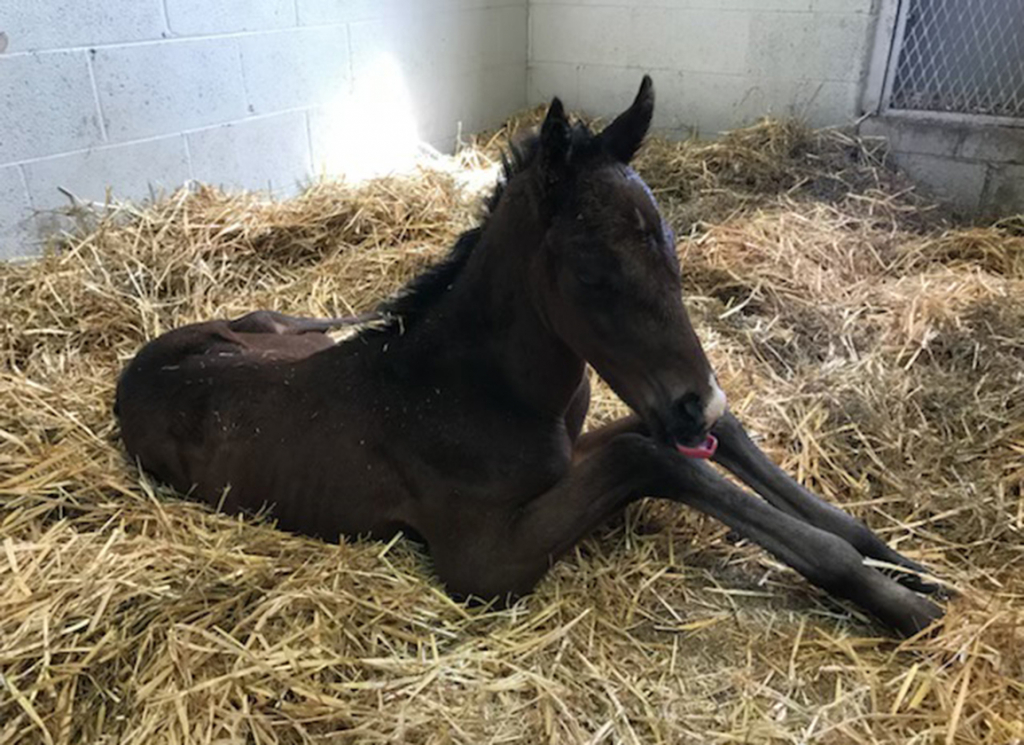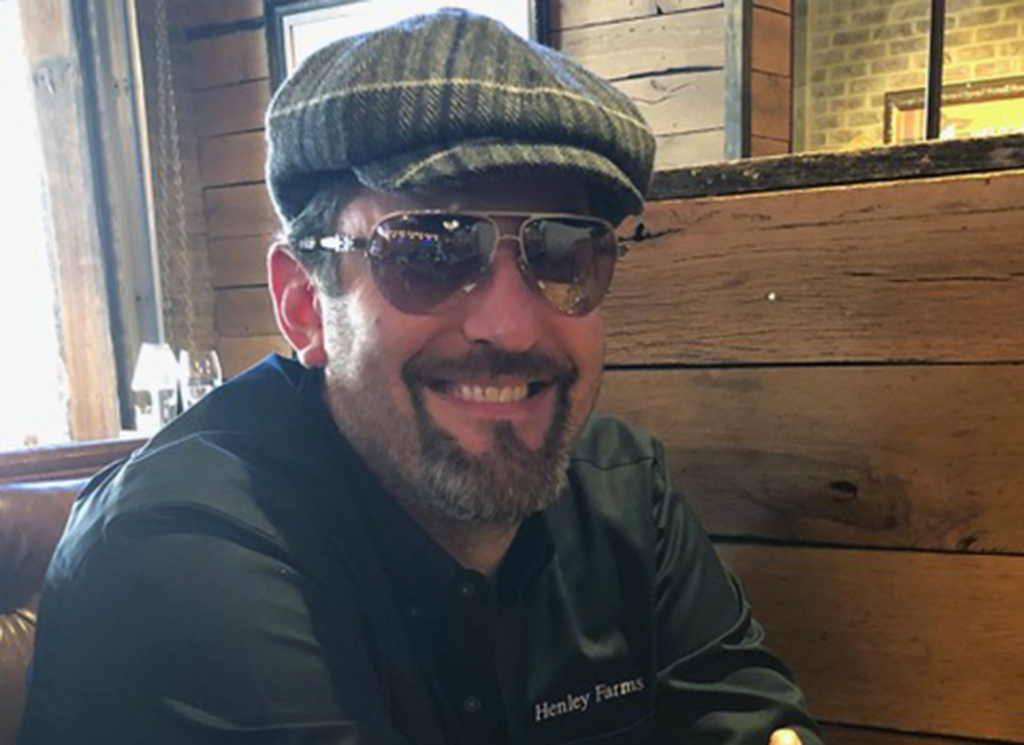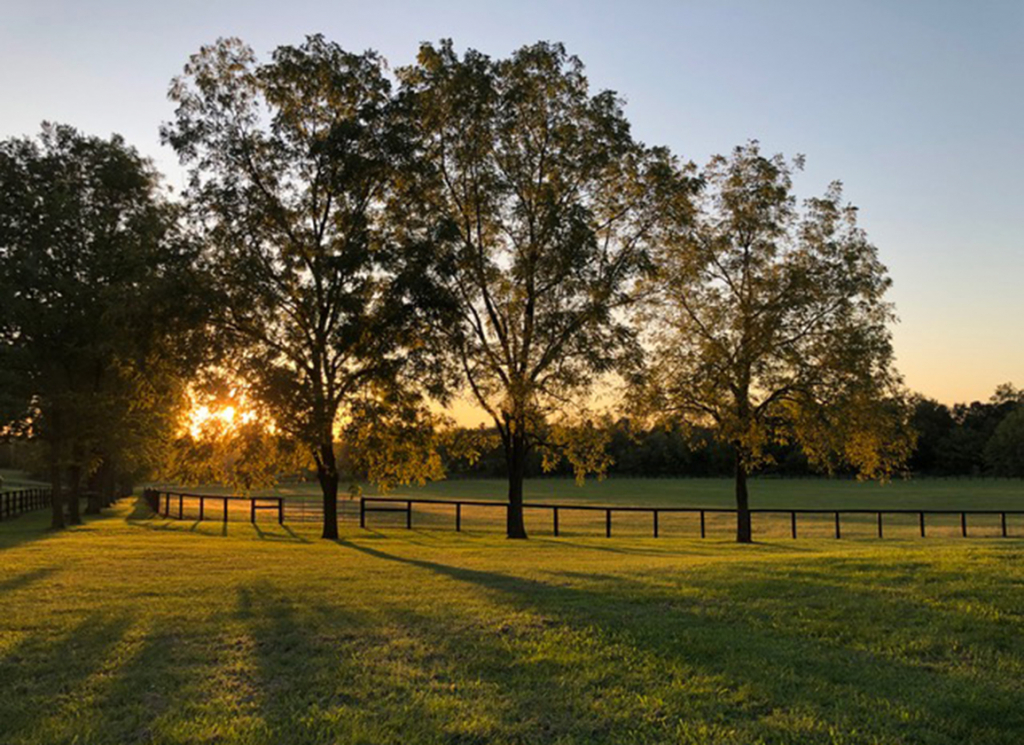They may be pretty new to this business, but Jana and Roy Barbe are perfectly aware that it won't always be like this; that many breeders, in fact, have worked with Thoroughbreds all their lives without ever experiencing anything quite like Saturday night.
First they watched a colt they had raised winning the GIII Peter Pan S. by 10 1/4 lengths, for the crop's joint-highest Beyer, lining up a return to the same track for the GI Belmont S. As related in TDN last week, the Barbes had acquired We the People (Constitution) in utero with one of their first mares in a somewhat impromptu adaptation of their Bluegrass farm–initially just a rural sanctuary from Jana's highflying corporate career, and a Chicago home without a backyard.
Then, five hours after We the People crossed the wire, Letchworth (Tiznow) finally delivered a colt–aptly enough, by More Than Ready–whose delayed advent had caused her owners several days' tension. It turned out that the mare had merely been waiting for her first Henley Farms foal to magnify the value of her fourth.
This precious colt will now begin to benefit from the same loving attention that turned We the People into a $110,000 weanling, instantly recouping the $40,000 invested in his pregnant dam at Keeneland January in 2019.
The Barbes' advisors at that auction, like many others at the time, were wary of a sire at a familiar crossroads. With his first juveniles imminent, WinStar had clipped his fee from $25,000 to $15,000. Even so, in an instructive measure of the nervous opportunism of commercial breeding today, 85 covers that spring halved his debut book of 172.
But the Barbes insisted that this was a long-term play on a mare they loved, with a very decent family behind her. If the paternity of her foal was going to cool the price, so much the better.
In the event, they found themselves with a commodity right back in demand after Constitution made a flying start. Though himself unraced at two, he led the freshman table by individual, black-type and graded stakes winners, while his earnings were surpassed only by American Pharoah–who had, of course, been supported by mares corresponding to a $200,000 opening fee. The two have since passed on the stairs, American Pharoah now down to $80,000 and Constitution having been raised initially to $40,000, and then to $85,000 after Tiz the Law consolidated the reputation of that debut crop with a dazzling sophomore campaign.
Tiz the Law, now standing at Ashford, arguably paid for a self-serving response to the pandemic by Churchill Downs. A September “Derby” gifted priceless maturity to Authentic (Into Mischief), who had surely remained too raw to have beaten him in May. In the meantime, absurdly, Tiz the Law had found himself contesting a “Belmont Stakes” over nine furlongs in June. We only revisit this unilateral shredding of the calendar because it would feel hard, as a result, to describe We the People as Constitution's second Classic winner; and impossible, meanwhile, to determine his stamina potential for this unique test from the fact that he happens to be bred on the same cross as Tiz the Law.
Now everybody tries to solve the puzzles of breeding in their own way, and there's no need for dogmatism when we can settle things out on the racetrack instead. Purely as a matter of personal taste, then, I always mistrust anything that sounds more like a “formula” than simply matching complementary physiques in a way that secures balance and quality through the resulting pedigree. Since you can't ever be certain which strands will come through, even in full siblings, the best insurance is for it not really to matter.
(Tapit himself is a good example: the female lines out of his third generation respectively introduce the dynasties of Gay Missile, Monarchy, Aspidistra and Foggy Note. And that, by the way, is why we need to be wary of the huge books of today. When you required elite mares to reach elite stallions, the quality was locked in.)
This focus on depth, however, is actually consistent with “nicking” when you have an immediate cross of the type uniting Tiz the Law and We the People: by Constitution out of a Tiznow mare. In their third generation, six of eight genetic contributors are the same. In the fourth, because the third dam of both bizarrely happens to be a daughter of Crafty Prospector, the parity becomes as high as 13 of 16. A cross this close, then, is actually shorthand for examining the interplay between far broader influences. (Obviously this ceases to be true once people imagine they can cross entire sire lines, though tapering to ever more receding brands like Fappiano, A.P. Indy or Storm Cat.)
So let's see what flavors stand out in the large inheritance shared by Tiz the Law and We the People; and then what emphasis might be latent in the surplus dividing them.
Well, the name that immediately leaps out is Foggy Note (The Axe II), mother both of Tapit's third dam and Tiznow's grandsire Relaunch. In each case, Foggy Note had been mated with In Reality–whose daughter out of the regal Magic (Buckpasser-Aspidistra) went on to produce the dam of Tapit's damsire Unbridled. (It was a daughter of Magic's half-brother Dr. Fager, incidentally, that produced Unbridled's sire Fappiano. One way or another, then, there's a lot of wholesome reinforcement here.)
Constitution's dam Baffled (Distorted Humor), a Royal Ascot-placed juvenile in a light career, would subsequently decorate his page with Boynton, a Group 2 winner at Newmarket for Godolphin; and Jacaranda, winner of the GIII Tempted S. And the pedigree also obtained fresh distinction from the GI Forego S. success of her half-brother Emcee (Unbridled's Song). Even as it was, her son made $400,000 as a Saratoga yearling.
That partly reflected Constitution's tall, rangy build, but her own parentage also had a nice shape: Distorted Humor had been chosen for her dam as a half-sister (by Ocean Crest, a rather forgotten son of Storm Bird) to Awesome Humor, a daughter of the same sire who completed the GII Adirondack-GI Spinaway double in 2002.
But it's Constitution's next dam that brings something intriguing to the We the People equation, as a daughter of Pass The Tab, who emerged from Santa Fe to run sixth in the 1981 Kentucky Derby. Because Pass The Tab's sire Al Hattab also gave us the fourth dam of We the People–and Al Hattab was a son of none other than The Axe II, the sire of Foggy Note.
This is all pretty ancient history, obviously, but it does feel healthy to see this doughty soil spread along the roots of the pedigree. Foggy Note herself (won 10 of 34 starts), Al Hattab (16 of 35) and Pass The Tab (11 of 33) all attest to the toughness and stamina associated with The Axe II. Certainly finding Al Hattab along the bottom line is no bad thing when you recall that one of his daughters produced Black Tie Affair, 18-for-45 and Horse of the Year at five; and that another gave us Holy Bull, whose own record as a broodmare sire is being lavishly advanced by the likes of Munnings, Cairo Prince, Caravaggio and Connect.
And this kind of bedrock could yet filter usefully into We the People's Belmont bid. Yes, we know that Tapit has made the race his own; that Constitution himself has had 12-furlong Classic winners in Chile; and that Tiznow is a powerful two-turn label. (Tiznow's remarkable dam Cee's Song (Seattle Song) is by a son of Seattle Slew, who in turn gazes down Constitution's sire line.) But the fact is that some strongly contrasting flavors intrude between Tiznow and The Axe II in We the People's bottom line.
Of course, we don't even know how far Tiznow might have drawn out Letchworth herself, as she was unraced. So, too, are two of the three foals (one raced in Russia) resulting from her sojourn at WinStar, who had bought her for $180,000 as a maiden mare (bred by Eugene Melnyk) before soon culling her to Henley Farms.
(It's obviously gratifying for WinStar to have “retrieved” her son as a 2-year-old, from Eddie Woods at the Gulfstream Sale, for $230,000–a price that achieved only a marginal gain on his yearling cost, in contrast with the previous pinhook cycle when Machmer Hall doubled their weanling investment.)
What we do know is that We the People's second and third dams, intervening between the sturdy pair Tiznow and The Axe II, are both by speed influences. And that fact told on the racetrack, too.
Letchworth is out of Harmony Lodge, a very brisk sprinter by Hennessy who also came through Woods's nursery at Gulfstream, for no less than $1.65 million, before making all in the GI Ballerina H. It feels quite alarming, in terms of We the People's prospects of lasting home in the Belmont, that Harmony Lodge's son by none other than A.P. Indy–while talented enough to run up a sequence of four as a sophomore before derailing–should have peaked in as hectic a dash as the GIII Shakertown S.
In fairness, Declaration of War did get Harmony Lodge's other black-type operator to extend as far as nine furlongs. (Likewise on turf/synthetics, confirming Hennessy's versatility in terms of surface.) But while Tiz the Law obviously saw out a 10th furlong well, in the GI Travers, we must remember that his second dam was by Go For Gin. That's a pretty stark contrast with Hennessy: Go For Gin was by a son of His Majesty out of a Stage Door Johnny mare.
This divergence feels all the wider with both Tiz the Law and We the People having third dams, as mentioned, by another source of speed in Crafty Prospector. Harmony Lodge was out of his half-sister to GII Tom Fool H. winner Diligence (Miswaki), Win Crafty Lady: a winner eight times across four seasons–as befits the daughter of an Al Hattab mare–including a Grade III over just six furlongs.
Win Crafty Lady also proved accomplished in her second career. She bred a GII Arkansas Derby winner by Dehere, in Graeme Hall; but her other graded stakes winner Win McCool, though by Giant's Causeway, prospered around a single turn. And beneath her this meanwhile remains a dynamic branch of the family: Win McCool's unraced daughter by Unbridled's Song produced the tragic Magnum Moon (Malibu Moon), while Graeme Hall's sister is second dam to a recent Grade I scorer in Pinehurst (Twirling Candy). Rookies or not, then, the Barbes deserve credit for prizing the bloodlines behind Letchworth–and have duly earned their incidental Constitution bonus.
For now, in terms of domestic Grade I success, Tiz the Law has been emulated only by Americanrevolution in the Cigar Mile, leaving their sire behind American Pharoah (four), Liam's Map (four) and Honor Code (three) in his intake. But it's only a matter of time before Constitution attends to that, his sheer consistency in elite stock already setting him apart even before the upgrade in his mares kicks in. Remember that his first $85,000 covers–and there were no fewer than 188 of those–have only just hit the foaling straw this spring.
As things stand, Constitution has 22 stakes winners at 6.6% of named foals; 52 stakes performers at 15.6%; 13 graded stakes winners at 3.9%; and 30 graded stakes operators at 9%. Among active stallions, his own sire is among very few who can set higher standards across the board. With Tapit entering the evening of his career, the succession is being keenly contested. But while there are several less expensive alternatives, Constitution is certainly giving himself every chance to be named the People's choice.
The post A Mating to Form a More Perfect Union appeared first on TDN | Thoroughbred Daily News | Horse Racing News, Results and Video | Thoroughbred Breeding and Auctions.





